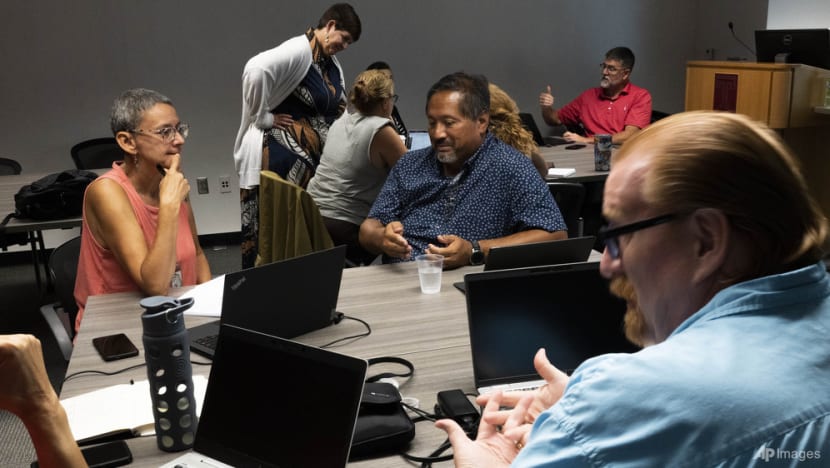When philosophy professor Darren Hick came across another case of cheating in his classroom at Furman University in South Carolina last semester, he posted an update to his followers on social media: “Aaaaand, I’ve caught my second ChatGPT plagiarist.”
Friends and colleagues responded, some with wide-eyed emojis. Others expressed surprise.
“Only two?! I’ve caught dozens,” said Timothy Main, a writing professor at Conestoga College in Canada. “We’re in full-on crisis mode.”
Practically overnight, ChatGPT and other artificial intelligence chatbots have become the go-to source for cheating in college.
Now, educators are rethinking how they’ll teach courses this fall from Writing 101 to computer science. Educators say they want to embrace the technology’s potential to teach and learn in new ways, but when it comes to assessing students, they see a need to “ChatGPT-proof” test questions and assignments.
For some instructors that means a return to paper exams, after years of digital-only tests. Some professors will be requiring students to show editing history and drafts to prove their thought process. Other instructors are less concerned. Some students have always found ways to cheat, they say, and this is just the latest option.
An explosion of AI-generated chatbots including ChatGPT, which launched in November, has raised new questions for academics dedicated to making sure not only that students can get the right answer, but also understand how to do the work. Educators say there is agreement at least on some of the most pressing challenges.
ARE AI DETECTORS RELIABLE?
Not yet, says Stephanie Laggini Fiore, associate vice provost at Temple University. This summer, Fiore was part of a team at Temple that tested the detector used by Turnitin, a popular plagiarism detection service, and found it to be “incredibly inaccurate”. It worked best at confirming human work, she said, but was spotty in identifying chatbot-generated text and least reliable with hybrid work.
Will students get falsely accused of using artificial intelligence platforms to cheat? Absolutely. In one case last semester, a Texas A&M professor wrongly accused an entire class of using ChatGPT on final assignments. Most of the class was subsequently exonerated.
So, how can educators be certain if a student has used an AI-powered chatbot dishonestly? It’s nearly impossible unless a student confesses, as both of Hicks’ students did. Unlike old-school plagiarism where text matches the source it is lifted from, AI-generated text is unique each time.
